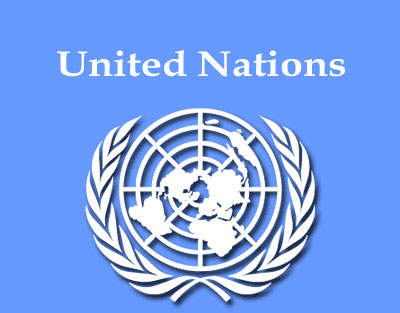UN acknowledges huge foreign exchange loss in Myanmar relief
 Yangon - United Nations humanitarian chief John Holmes acknowledged Thursday that the international community's relief effort for the victims of Cyclome Nargis in Myanmar was losing millions of dollars to the regime's foreign exchange controls.
Yangon - United Nations humanitarian chief John Holmes acknowledged Thursday that the international community's relief effort for the victims of Cyclome Nargis in Myanmar was losing millions of dollars to the regime's foreign exchange controls.
"This is an extraordinary exchange loss, and where that gain goes I'm not sure," Holmes said in an interview before departing Myanmar after a three-day assessment tour of the areas affected by the cyclone that slammed into Myanmar's central coast on May 2-3 leaving about 140,000 people dead or missing.
Inter City Press disclosed earlier Thursday that the UN, which has issued a flash appeal for 482 millions from the international donors for cyclone relief efforts in Myanmar has been losing more than 20 per cent of the incoming funds to the government's unique foreign exchange requirements.
Under Myanmar's foreign exchange rules, dollars brought in by foreign agencies and tourists must be converting into Foreign Exchange Currency (FEC) at government banks, and then converted into the kyat currency.
The exchange rate is currently about 880 kyats for each Foreign Exchange Certificate, compared to 1,180 for each dollar, or a loss of about 25 per cent, said the Inter City Press, referring to an internal UN memo it had seen.
"This issue is a very serious problem," said Holmes. "We need to try find a solution."
He said he had raised the issue with the government during talks with the junta held in their capital of Naypyitaw earlier Thursday.
The UN has appealed for 482 million dollars in emergency relief for an estimated two million people still suffering the affects of Cyclone Nargis, especially in the Irrawaddy delta.
Holmes estimated that the relief work would continue for at least another six months, while recovery and reconstruction efforts would go on until April, next year.
International efforts to extend aid to victims of the cyclone have been hampered by the ruling military regime, which during the initial post-catastrophe period slowed the entry of emergency assistance and aid workers to the notoriously xenophobic country.
The aid flow was speeded up considerably after the establishment of a tri-partie mechanism including representatives from the Association of South-East Asian Nations (ASEAN), the UN and Myanmar government in early June, but the exchange problem was not revealed. (dpa)